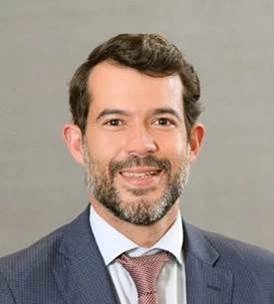
As my plane lands in Maputo, I am welcomed home by blankets of turquoise waters edged in creamy ribbons of sand, and swaths of greens in every shade, from scrubby mangroves to unique coastal forests endemic to Maputaland. But I also see rapidly sprawling human settlements and degraded areas where forests once flourished.
Forests cover 70% of the country, employ 22,000 people, and contribute $330 million to the annual economy. However, they are being lost at a rate of 220,000 hectares a year. Conservation areas protect 23% of the landmass, but dire financial and personnel shortages lead to increased risks of wildlife poaching and habitat loss.
Identifying opportunities in one of the world’s poorest countries, where 70% of the population depend on natural resources for their livelihoods, requires an approach that actively promotes a healthy coexistence between humans and nature. We cannot tackle deforestation and overexploitation of resources without addressing issues such as rural poverty, community rights, and land management.
In recent years, Mozambique has taken significant steps in strengthening rural development and natural resource management. To further the government’s efforts, the World Bank Group’s Environment and Natural Resources team in Mozambique is implementing an Integrated Landscape and Forest Management (ILFM) portfolio combining investments, technical assistance, analytical work, and results-based finance. This set of interventions is designed to enhance rural communities’ livelihoods while promoting the sustainable management of natural resources. A dynamic portfolio, it will play an important role in the country’s sustainable development going forward.
The ILFM provides support in the management of both high potential tourism parks and the more remote terrestrial conservation areas. For example, in the Gilé National Reserve, the World Bank has been working closely with the government to introduce sustainable agricultural methods for communities living around the park and help them access payments through the REDD+ program.
Communities are at the core of all the ILFM’s initiatives. It is essential to work closely with families, residents, and civil society to ensure that those who rely on land resources for their livelihoods are benefiting from Bank-supported activities. Multi-stakeholder platforms are also instrumental in discussing opportunities and incentives for forest-dependent communities. In the Zambézia Province, a memorandum of understanding was recently signed by the community, civil society, and the government, providing a platform and opportunity for participants to claim ownership over the projects and to access resources such as the geo-spatial data needed to inform the new REDD+ emissions reduction program.
In addition, the private sector can serve as a catalyst when it comes to diversifying and strengthening Mozambique’s economy. The ILFM portfolio has strengthened public-private partnerships, while diversifying income-generating activities for communities. The Bank is supporting the increase in rural jobs and investment while promoting sustainable land management. Three private forest concessions owners have already established partnerships with local communities for the sustainable management of their forests and are adding value to forest products.
As the airplane circles Maputo, I look out the window watching lego-like houses and broccoli-sized trees transform into the reality of modern day Maputo: a bustling city encapsulating all the opportunities and challenges facing this country. The contrast between the earlier majestic coastal and forest views with that of the city is a reminder that human and natural forces are not at odds with each other, but rather are part of the same earthly masterpiece.
I remember the words of President Filipe Nyusi at the launch of one of the ILFM portfolio projects earlier this year: “Rural areas are the starting point and the destination for all of Mozambique’s development.” I feel a surge of confidence for what the World Bank, the government, communities and civil society will be able to achieve in this remarkable country.


Join the Conversation